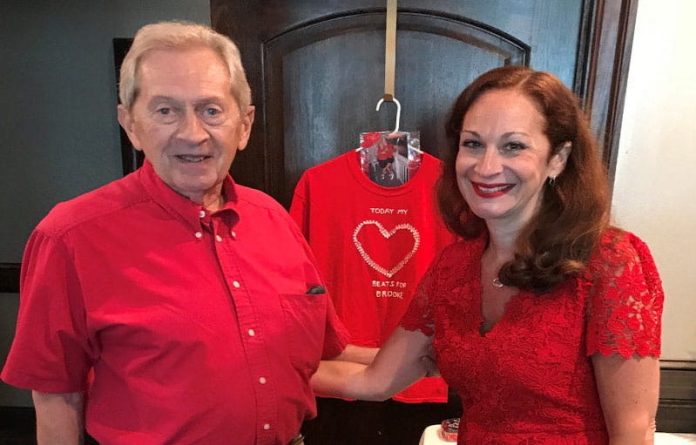
Brooke Bognanni had been struggling with abdominal pain for about six weeks when she fit in a visit with her longtime physician.
While describing her symptoms, the active college professor from Baltimore mentioned something else strange. She’d been having trouble catching her breath after walking up the hill and stairs to her second-floor office.
Brooke planned to go from the doctor’s office to running errands with her father, Mario. Her doctor insisted that she instead report to a hospital for some cardiac tests.
That night, a cardiologist called Brooke at home and described what the tests had revealed. Brooke had a faulty mitral valve and a prominent heart murmur. At 39, she was experiencing heart failure. She needed heart surgery to survive.
Brooke was referred to a heart surgeon. She tried bargaining with him.
Did she really need surgery? Yes. Perhaps she could just try medication first? No. Well, could she at least delay the surgery a few weeks until after the semester? He relented after Brooke promised to take no risks before the big day.
While she was teaching and waiting, she also took care of important documents: a will, living will, medical power of attorney, letters to loved ones. She relied on one of her strengths, writing, to help her process her condition and what could go wrong.
“Writing is how poets pray,” she said. “They think about things and ponder the big questions.”
That surgery in June 2013 was successful, though there were complications, including a severed nerve in her right leg; the sensation will never return. Another problem almost stole her voice and required another surgery that autumn.
An only child, Brooke went through it all with her parents by her side. They accompanied her to every doctor’s visit, made decisions as a family unit and talked through waves of emotions.
“We would sit in the den and talk a lot as a family,” Mario said.
Brooke had adapted to life as a survivor of heart disease when she faced another crisis.
In 2016, she was getting ready to go out for a run from her parents’ home. She bent over to tie her shoes and lost control of her left side. She hobbled downstairs. Her mom, Paula, took one look at her and recognized she was having a stroke.
At the emergency room, imaging showed a blood clot in the right side of her brain.
Brooke spent a week in intensive care and the next few months working to regain speech and use of her left side. In the meantime, doctors tried to find a connection between her heart surgery and her stroke – a mystery that remains unsolved.
Brooke’s resolve, though, remains strong.
She continues to teach as a college professor. She continues to exercise and to eat healthily. She places an even greater importance on relationships.
And she is open to speaking about the grief and isolation that comes with traumatic health issues, eager to use the voice she almost lost.
“It’s been 10 years, but I’m finally at a place where can I talk with others and help other people,” she said. While she’s reached acceptance of her health struggles, the journey has been painful, with stages of denial, depression and anger along the way.
She wants to help other women who are coping with heart disease – and its psychological tolls.
Brooke’s desire to help other survivors is also rooted in her love for her mom, who lived with heart disease and died after a heart attack on Easter this year.
Paula was with Mario, her husband of almost 60 years, and with Brooke when she died.
Brooke understands that life is unpredictable, and she is eager to share her story of resilience with others.
She’s also not wasting time when she speaks with people she cares about. “You just have to tell the people you love that you love them while you can,” she said.
Written by Tyra Damm.
If you care about stroke, please read studies about This drug shows better outcomes over aspirin in stroke patients and findings of Scientists find new way to predict risk of heart attacks and strokes.
For more information about stroke, please see recent studies about drug combo that can cut risk of stroke and heart attack by half, and results showing MIND diet could slow down cognitive decline after stroke.
Follow us on Twitter for more articles about this topic.



